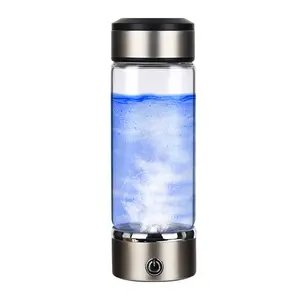To put it simply, a hydrogen fuel cell generator is a device that extracts hydrogen (H2) from the water via electrolysis. If the hho dry cells' hydrogen supply pressure is high enough, it can do away with the need for hydrogen cylinders altogether, making for a more convenient and secure option.
importance of using a hydrogen generator
A micro hydrogen generator will deliver hydrogen that is of constant purity, removing the possibility of a change in gas quality that may influence the results of an analysis. Because a hydrogen water generator can produce gas whenever it's needed, you won't have to worry about running out of fuel at an inconvenient time if you have one. This feature is available round-the-clock. A hydrogen converter for cars provides access to an alternative energy source that has a number of advantages. It is important to note that a hydrogen fuel cell generator can be utilized directly as a fuel, as energy storage, to generate power, or even as a chemical feedstock. Hho gas has more energy per unit of weight than fossil fuels. Hydrogen powered generators that are cooled by hydrogen are superior to their air-cooled counterparts in terms of their overall efficiency as well as the amount of mass that is required to create them. The majority of hydrogen kits for cars operate by adding something else to the water, therefore they can only be used with certain types of water.
How safe is the hydrogen generator?
Rather than investing in expensive high-pressure cylinders of H2, you may take use of safer, more convenient, and more cost-effective DIY hydrogen generators. There will be no chance of analytical results being impacted by fluctuations in gas quality thanks to a hydrogen generator for cars ability to produce hydrogen of appropriate sterility. Hydrogen is non-toxic and has other features that make it a safer fuel to work with and burn than those now in use. Plus, hydrogen is much lighter than air, so it dissipates quickly when released, providing for quick dispersion of the fuel in the event of a leak.
































 浙公网安备 33010002000092号
浙公网安备 33010002000092号 浙B2-20120091-4
浙B2-20120091-4